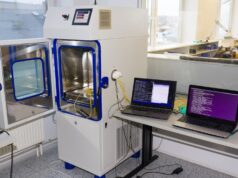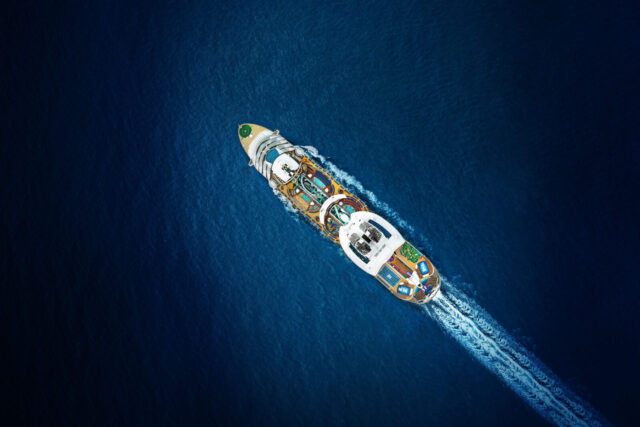
The cruise industry has embarked on a remarkable journey of transformation, propelled by advancements in technology that have redefined the maritime travel experience. Gone are the days when cruises were just about sunsets and shore excursions; today, they are floating smart cities, offering a seamless blend of luxury, convenience, and innovation. This blog explores the pivotal role of technology in reshaping the cruise industry, highlighting how it has revolutionized operations, enhanced guest experiences, and paved the way for sustainable maritime travel.
1. Integration of IoT and Smart Ship Technologies
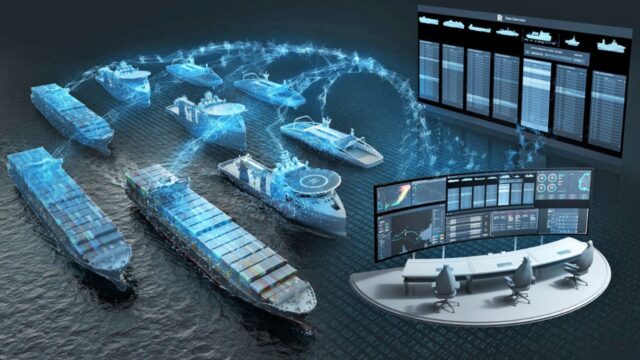
The advent of the Internet of Things (IoT) has led to the development of ‘smart ships’ equipped with sensor-driven technologies that optimize operations and elevate the passenger experience. These floating marvels employ IoT to monitor and manage everything from navigation systems to energy consumption and onboard amenities.
- Smart Navigation and Operational Efficiency: Modern cruise ships are equipped with sophisticated navigation systems that leverage real-time data and analytics to optimize routes, enhance safety, and improve fuel efficiency. IoT sensors monitor weather conditions, sea traffic, and potential hazards, enabling captains to make informed decisions and ensure smooth sailing.
- Personalized Guest Experiences: IoT technology extends to passenger services, with wearable devices, like bracelets and keycards, allowing guests to unlock their rooms, make purchases, and access personalized itineraries. These devices are connected to the ship’s network, enabling staff to provide tailored services, from custom dining recommendations to activity suggestions, enhancing the overall guest experience.
2. Revolutionary Onboard Amenities and Entertainment
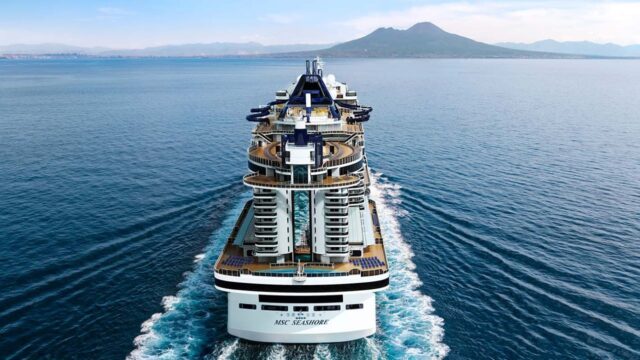
Technology has significantly expanded the scope of onboard amenities and entertainment, transforming cruise ships into floating entertainment hubs. From virtual reality experiences to digital concierge services, passengers can enjoy an array of high-tech features that ensure an unforgettable journey.
- Innovative Entertainment Options: Cruise ships now offer a range of tech-driven entertainment options, including virtual reality arcades, augmented reality games, and interactive digital walls. These features not only entertain guests but also immerse them in unique, futuristic experiences that were once unimaginable at sea.
- Enhanced Connectivity at Sea: With the implementation of advanced satellite technology and onboard Wi-Fi networks, passengers can enjoy high-speed internet access throughout their journey. This connectivity allows travelers to stay in touch with family, work remotely, or stream media, breaking the traditional isolation of sea travel.
3. Sustainable Practices and Environmental Stewardship
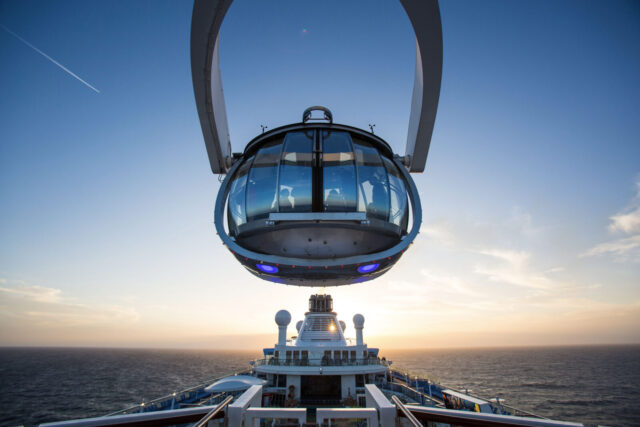
As environmental concerns take center stage, the cruise industry is leveraging technology to adopt more sustainable practices and reduce its ecological footprint. Innovative solutions in ship design, waste management, and energy use are leading the way toward greener, more responsible cruising.
- Energy-Efficient Ship Designs: New cruise ships are being designed with energy efficiency in mind, incorporating features like air lubrication systems that reduce hull resistance and solar panels that supplement power needs. These designs not only cut fuel consumption but also decrease greenhouse gas emissions, contributing to a cleaner marine environment.
- Advanced Waste Management Systems: Technology has revolutionized waste management on cruise ships, with advanced treatment facilities capable of processing waste water and solid waste to significantly reduce environmental impact. These systems ensure that the waste is treated and disposed of in an eco-friendly manner, adhering to stringent international standards.
As technology continues to evolve, its impact on the cruise industry grows, offering passengers more immersive, convenient, and sustainable travel experiences. The integration of smart technologies, innovative entertainment, and environmental stewardship showcases the industry’s commitment to embracing the digital age, promising a future where cruising is not only about exploring new horizons but doing so in a way that is smarter, safer, and more sensitive to our planet.
4. Enhanced Safety and Security Measures
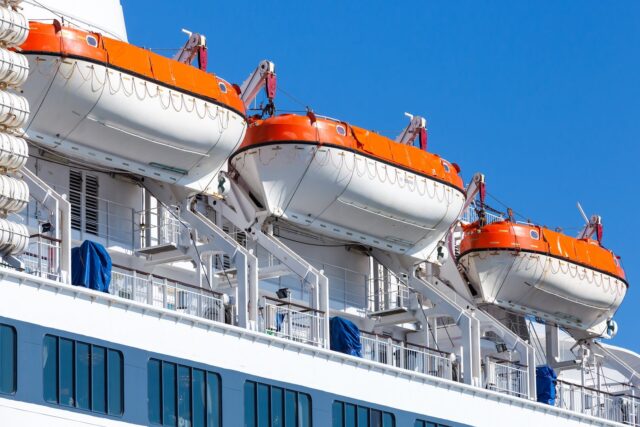
With the integration of advanced technology, cruise lines have significantly improved safety and security protocols, ensuring the well-being of passengers and crew at all times. Cutting-edge surveillance systems, automated man-overboard detection, and state-of-the-art navigational tools are just a few examples of how technology contributes to a safer cruise environment.
- Advanced Surveillance and Detection: Modern cruise ships are equipped with comprehensive surveillance systems that monitor public areas, utilizing high-definition cameras and motion detectors to ensure passenger safety. Technologies like thermal imaging and radar systems can instantly detect man-overboard incidents, facilitating quick response and rescue operations.
- Navigational Excellence: Technological advancements in navigational systems allow for precise positioning and routing of cruise ships, even in challenging weather conditions or congested sea lanes. This precision not only enhances safety but also contributes to a smoother, more enjoyable travel experience for passengers.
5. Digital Health and Wellness Initiatives
In response to global health challenges, cruise lines have adopted digital health technologies to ensure the safety and well-being of guests and crew. Contactless check-ins, telehealth services, and real-time health monitoring are part of the new normal in cruise travel, reflecting a shift towards more health-conscious and technologically equipped voyages.
- Contactless Operations and Health Monitoring: Utilizing mobile apps and wearable technology, cruise lines can now streamline check-ins, medical consultations, and daily health screenings. These digital solutions minimize physical contact and allow for efficient tracking and management of health-related data, ensuring a safer environment onboard.
- Telehealth and Medical Services: Onboard medical facilities are equipped with telehealth capabilities, allowing passengers to consult with medical professionals remotely. This not only provides convenience but also enhances the capacity to address health concerns promptly and effectively.
6. Automation and Robotics in Service Delivery
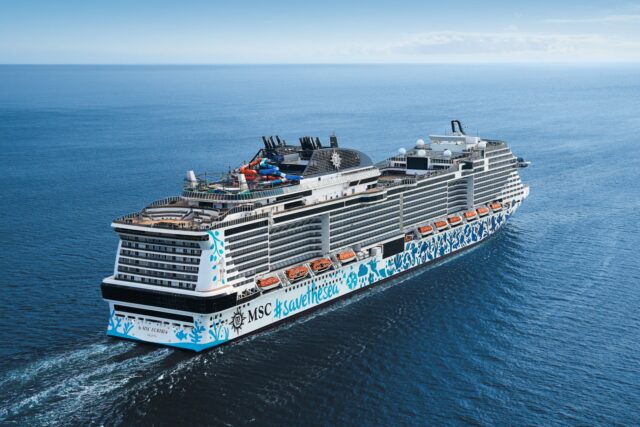
The use of automation and robotics in the cruise industry has revolutionized service delivery, enhancing operational efficiency and creating unique guest experiences. From robotic bartenders to automated housekeeping systems, technology is redefining the standards of service on cruise ships.
- Robotic Staff and Automated Services: Some cruise lines have introduced robotic bartenders and service robots to deliver drinks, manage luggage, and provide information services. These robotic staff members not only add a futuristic element to the cruise experience but also optimize service delivery and reduce wait times for guests.
- Efficient Housekeeping and Maintenance: Automated systems are increasingly being used for housekeeping and maintenance tasks onboard. These technologies ensure high standards of cleanliness and upkeep, contributing to a more pleasant and hygienic environment for passengers.
Incorporating these advanced safety, health, and service technologies, cruise lines are setting new benchmarks in the industry, prioritizing passenger well-being and satisfaction. While embracing these technological innovations, maintaining cruise etiquette, such as respecting crew members and fellow passengers, remains essential to ensuring a harmonious and enjoyable voyage for everyone.
With each technological stride, cruising is becoming an experience that is not only more enjoyable but also safer, healthier, and more efficient. As the industry sails into the future, these technological advancements will continue to play a crucial role in shaping the evolution of cruise travel, making it more accessible, enjoyable, and sustainable for travelers around the globe.



